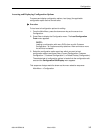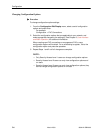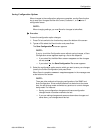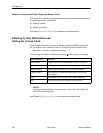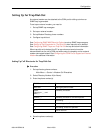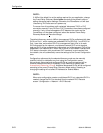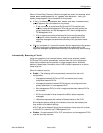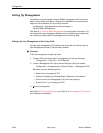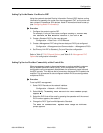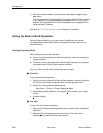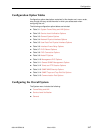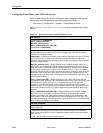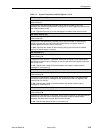
Configuration
3-12
9664-A2-GB20-00
March 2000
NOTE:
If 1MPort (the default) is not the setting required for your application, change
the Frame Relay Discovery Mode before connecting the network cable or
editing discovered option settings. Otherwise, the FrameSaver unit will start
“discovering” DLCIs as soon as it powers up.
To recover from this problem, edit a selected “discovered” DLCI or PVC
connection manually if any DLCIs or PVC Connections have been configured
manually. If only a local management PVC between the router and the
FrameSaver unit has been configured, select the desired Frame Relay
Discovery Mode and S
ave the change.
The default discovery mode is 1MPort (management DLCIs multiplexed with data
DLCIs on Port-1, which creates two embedded DLCIs [EDLCIs] – one EDLCI for
Port-1 user data, and another EDLCI for management data); that is, for each
DLCI discovered on the network, a multiplexed network DLCI and a standard
data port DLCI will be configured and connected, and a Management PVC will be
embedded in the network DLCI. When LMI is active on the network interface and
PVC status information (with provisioned DLCI numbers) is next received from
the network, the unit automatically saves the settings to the Current Configuration
area.
Configuration options set by the selected discovery mode can be manually
modified, refined, or deleted at any time using the Configuration menus.
No previously discovered and configured DLCIs or cross-connections will be
removed unless authorized or Automatic Circuit Removal is enabled (see
Automatically Removing a Circuit
). Additional discovered DLCIs will be configured
according to the current Frame Relay Discovery Mode setting. Selecting or
changing the setting will not affect IP Addresses or Subnet Masks.
NOTE:
When auto-configuration creates a multiplexed DLCI, but a standard DLCI is
needed, change the DLCI to standard from the network DLCI Records
screen:
Configuration
→
Network
→
DLCI Records




